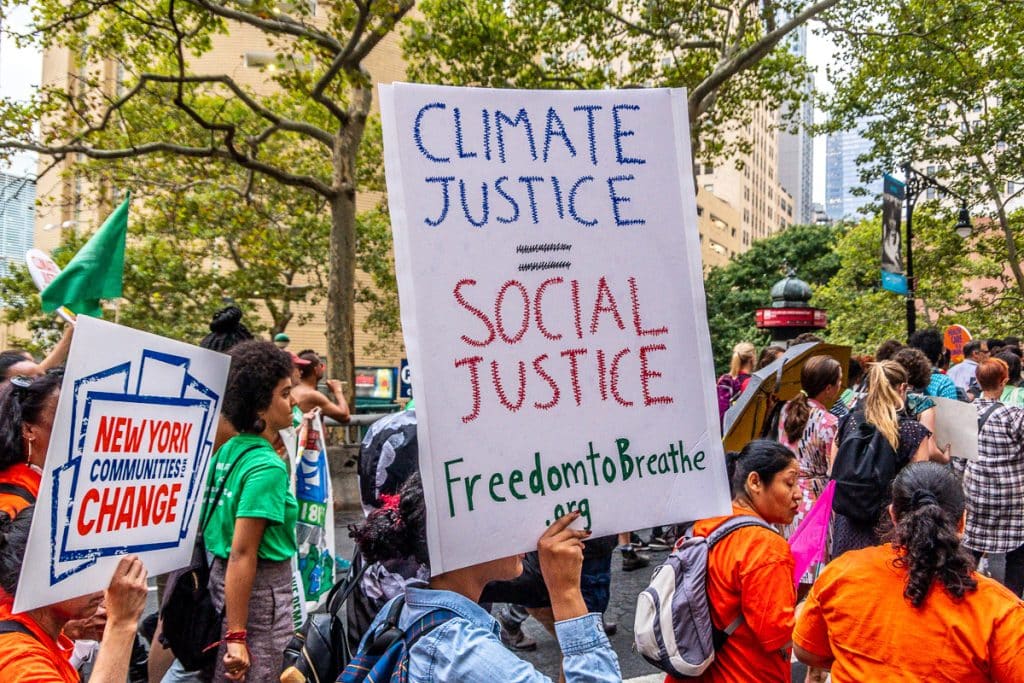The EU’s 27 member states, along with Norway, Turkey, the UK, Switzerland, and Russia, are accused of breaching fundamental human rights by failing to adequately address climate change.
—
Six young Portuguese climate activists aged 11-24 have taken all EU member states along with five other governments to Europe’s top human rights court for failing to address anthropogenic climate change.
The case – the largest climate case to be filed at the European Court of Human Rights (ECHR) – could result in legally binding consequences and groundbreaking reforms for the governments involved, which are accused of neglecting climate change and failing to cut planet-warming greenhouse gas emissions as required by the Paris Agreement, which set a target of limiting global warming to 1.5C.
The plaintiffs, who filed the case in 2020, argue that the extreme heat and forest fires that have affected Portugal each year since 2017 are directly linked to climate change and that governments’ negligence in acting to reduce emissions is a clear violation of their right to life, privacy, family life, and freedom from discrimination under the European Convention of Human Rights.
Among the direct impacts that rising temperatures in the country have had on them, the young activists cited a lack of sleep and concentration, climate anxiety, allergies and respiratory conditions. They also argued that extreme temperatures have often prevented them from attending school.
Climate anxiety – or eco-anxiety – refers to distress and mental health issues directly linked to climate change. This rising phenomenon has been observed especially among youngsters, who are increasingly aware of and concerned about the environmental degradation affecting our planet. A 2021 Lancet study proved that climate anxiety is widespread among children and young people, who are highly dissatisfied with their governments’ inadequate response to climate change and associated feelings of betrayal.
We’re ready 🟢
⚖️ The hearing in the @ECHR_CEDH that could decide our future has just begun.
Government inaction around the #ClimateCrisis has lasted for far too long. We need change now. pic.twitter.com/uufvChNTmI
— Youth4ClimateJustice (@Y4CJ_) September 27, 2023
“People are increasingly desperate and we increasingly have a disconnect between governments saying they are committed to decarbonisation and a lack of policy to do so,” Sebastien Duyck, senior attorney at the Center for International Environmental Law, a US-based legal NGO, told the Financial Times.
“Without urgent action by the governments, the youth applicants involved in this case face unbearable heat extremes that’ll harm their health and their wellbeing,” Gearóid Ó Cuinn, director of Global Legal Action Network (GLAN) that is supporting the applicants, told the BBC. “We know that the governments have it within their power to do much more to stop this, but they are choosing not to act.”
The six youngsters traveled by road and rail over two days to reach Strasbourg, where the first hearing was held on Wednesday. None is seeking financial compensation from the trial.
Dunja Mijatović, the Council of Europe’s Commissioner for Human Rights, told the Financial Times the case was “crucially important for the future of our children, of future generations and our planet”.
The case follows a recent, groundbreaking climate trial that took place in the US state of Montana, which saw 16 young residents, aged 5-22, accusing state officials of violating their constitutional right to a healthy environment. Their victory set an important precedent as it proved that young people anywhere in the world can hold their governments accountable through legal action.
A ruling in the Strasbourg case is expected in the first half of 2024.
Featured image: Fred Murphy.
You might also like: How the Landmark Montana Climate Trial Paved The Way For Young Climate Activists


















